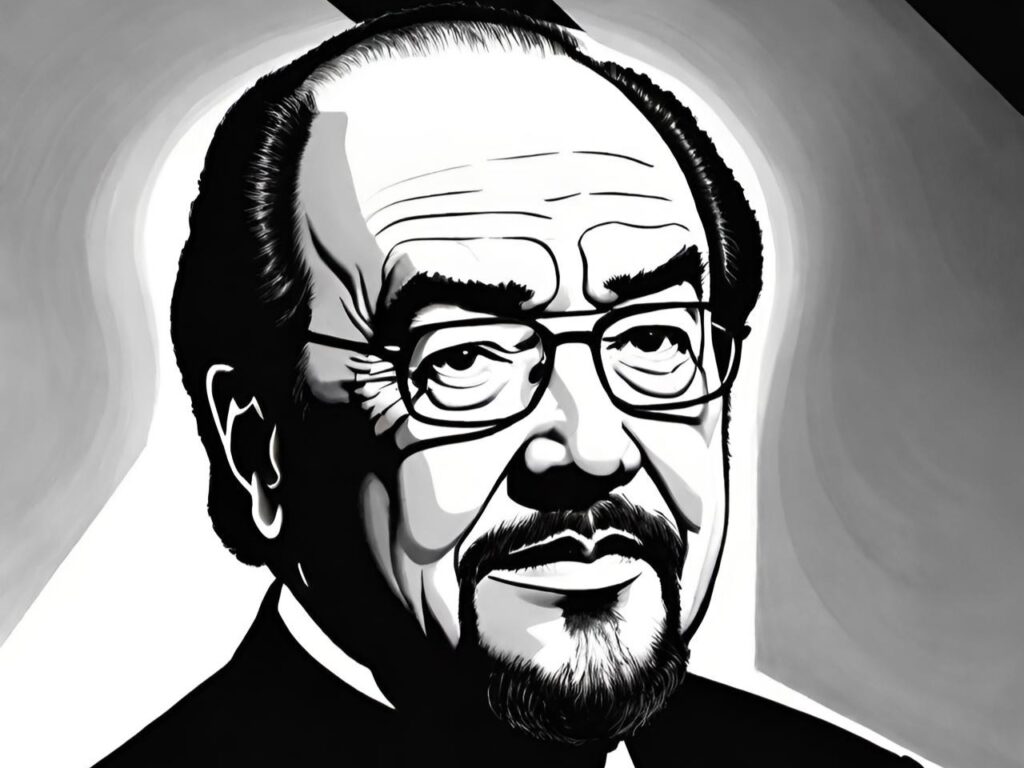Public debates serve as crucial platforms for intellectuals and experts to present their arguments and engage in a thoughtful exchange of ideas. However, not all debates go as planned, and occasionally, a renowned figure may deliver a performance that falls short of expectations. In recent memory, one such incident occurred at the Munk Debates, where the acclaimed author and speaker, Malcolm Gladwell, stumbled in delivering a compelling argument. This article aims to analyze Gladwell’s performance at the Munk Debates, highlighting the shortcomings and implications of his lackluster presentation.
Background on Malcolm Gladwell and the Munk Debates
Malcolm Gladwell has gained significant recognition for his books, such as “The Tipping Point” and “Outliers,” which explore social phenomena and human behavior through the lens of captivating storytelling. The Munk Debates, on the other hand, are known for hosting intellectually stimulating debates on a range of topics, inviting prominent speakers from diverse fields to share their perspectives. The collision of these two renowned figures was anticipated with great anticipation, but unfortunately, Gladwell’s performance did not live up to expectations.
I am first introduced to Malcolm Gladwell when I follow his class in ‘Writing’ on the website ‘Masterclass’. I find this class to be inspiring and it made me a big fan of his. This leads me to start reading his books. Unlike a normal trajectory, I start with his latest work “Talking to Strangers” and work my way up from there. I loved this book; the theme is fascinating and thought-provoking and the examples are engaging to read. But the more books I read, the more doubts I get. His structure becomes transparent pretty fast, his tone towards some of his subjects comes across as spiteful and envious, some of his insights are oversimplified and others don’t seem true at all.
Gladwell’s Lack of Clarity and Coherence
One of the primary criticisms of Gladwell’s performance at the Munk Debates is his lack of clarity and coherence in presenting his arguments. Known for his storytelling prowess, Gladwell often relies on anecdotes and narratives to convey complex ideas. However, in this particular debate, he fails to effectively connect his anecdotes to his main points, resulting in a disjointed and confusing presentation. This lack of clarity makes it difficult for the audience to follow his line of reasoning and weakens the impact of his arguments.
Superficial Analysis and Oversimplification
Another significant issue with Gladwell’s performance is his tendency to provide a superficial analysis and give oversimplified explanations. Gladwell’s unique approach to storytelling often involves simplifying complex concepts for a broader audience. However, in a debate setting where intellectual rigor is expected, this approach proved to be his downfall. His arguments lacked depth, failing to address the complexities and nuances of the subject matter. This oversimplification diminished the credibility of his viewpoints and made it easier for opponents to challenge his ideas.
Lack of Convincing Evidence
Debates thrive on robust evidence and data that support the speakers’ claims. Unfortunately, Gladwell’s performance at the Munk Debates was marred by a lack of convincing evidence to substantiate his arguments. While his anecdotes may be engaging, they fall short in establishing a strong foundation for his claims. Debates require a well-researched and evidence-based approach, and Gladwell’s failure to provide compelling facts and data weakened his overall performance.
Ineffective Rebuttal and Responses
Another aspect was his ineffective rebuttal and responses to his opponents. Debates often involve engaging in a back-and-forth exchange, defending one’s position while critiquing the opposing side. Gladwell’s responses appeared unprepared and lacked the necessary depth to counter his opponents’ arguments effectively. This weakness in responding undermined his credibility and made it easier for his opponents to undermine his position. It didn’t matter what new information Matt and Douglas brought to the debate, Malcolm kept repeating the tired old ‘ad hominem’ that Matt is a racist journalist who wants to go back to the times when Walter Cronkite read the news. He also kept insisting that his opponents had to get their story straight and accused them of poorly explaining what they meant when referring to ‘Mainstream Media’.
Impact and Lessons Learned
The performance by Malcolm Gladwell at the Munk Debates left a lasting impact on both the audience and his reputation. As an influential figure, his lackluster presentation raised questions about his credibility and ability to engage in substantive debates. It highlighted the significance of thorough preparation, intellectual rigor, and evidence-based reasoning in such high-profile events.
After watching the debate, I listened to his podcast “Revisionist History” where he talks about his public undressing during the debate. Yet still, he did not seem to grasp what it was that soured people on him. He thinks it’s about his debate skills and the fact that Douglas Murray is a frequent debater at Oxford. The fact of the matter is, he just didn’t listen to his opponents, went into the debate with a mindset to “win” and repeated ‘ad hominem’-attacks on his opponents, which were completely uncalled for. He kept a cringeworthy level of arrogance and smugness throughout the entire debate.
The comment section is full of disappointed fans who second guess their believe in his intellectual integrity. One of these comments sums up pretty well what most are saying:
“I was a HUGE Gladwell fan before that debate. I read all the books, subscribed to the podcast, and really tried to apply some of the concepts he talks about in my own life. After the debate, I couldn’t listen to the podcast anymore. The whole idea of “Revisionist History” became perverse to me. After watching him struggle to paint his opponents as racists and xenophobes in real-time, it became clear to me that he’s been doing that with every episode of his podcast – Twisting narratives to fit the one he wants. I was so excited to hear him talk about the debate and admit his faults, maybe even apologize for treating his opponents so disrespectfully…but I’m disappointed yet again. Malcolm, I’m saddened to say: you’ve lost a fan.”
Conclusion
The Munk Debates are renowned for hosting intellectually stimulating discussions, but Malcolm Gladwell fell short of expectations. His lack of clarity, oversimplification, insufficient evidence, and ineffective responses ultimately undermined his arguments and weakened his overall performance. This incident serves as a reminder that even acclaimed intellectuals can stumble in high-pressure situations. However, it also emphasizes the importance of thorough preparation and a commitment to intellectual rigor when engaging in public debates.
At the beginning of every Munk Debate, the audience is asked to choose if they’re on the side of ‘Pro’ or ‘Con’. This reveals the audience is split in a 48-52 divide. At the end of every debate, the audience must choose once again in order to see how many people have changed sides. This debate marks the biggest vote gain in its history, with 67% ending up on the side of Douglas Murray and Matt Taibbi. Karma delivered a well-deserved blow to Malcolm Gladwell, thusly wiping the smug smile of his face.




